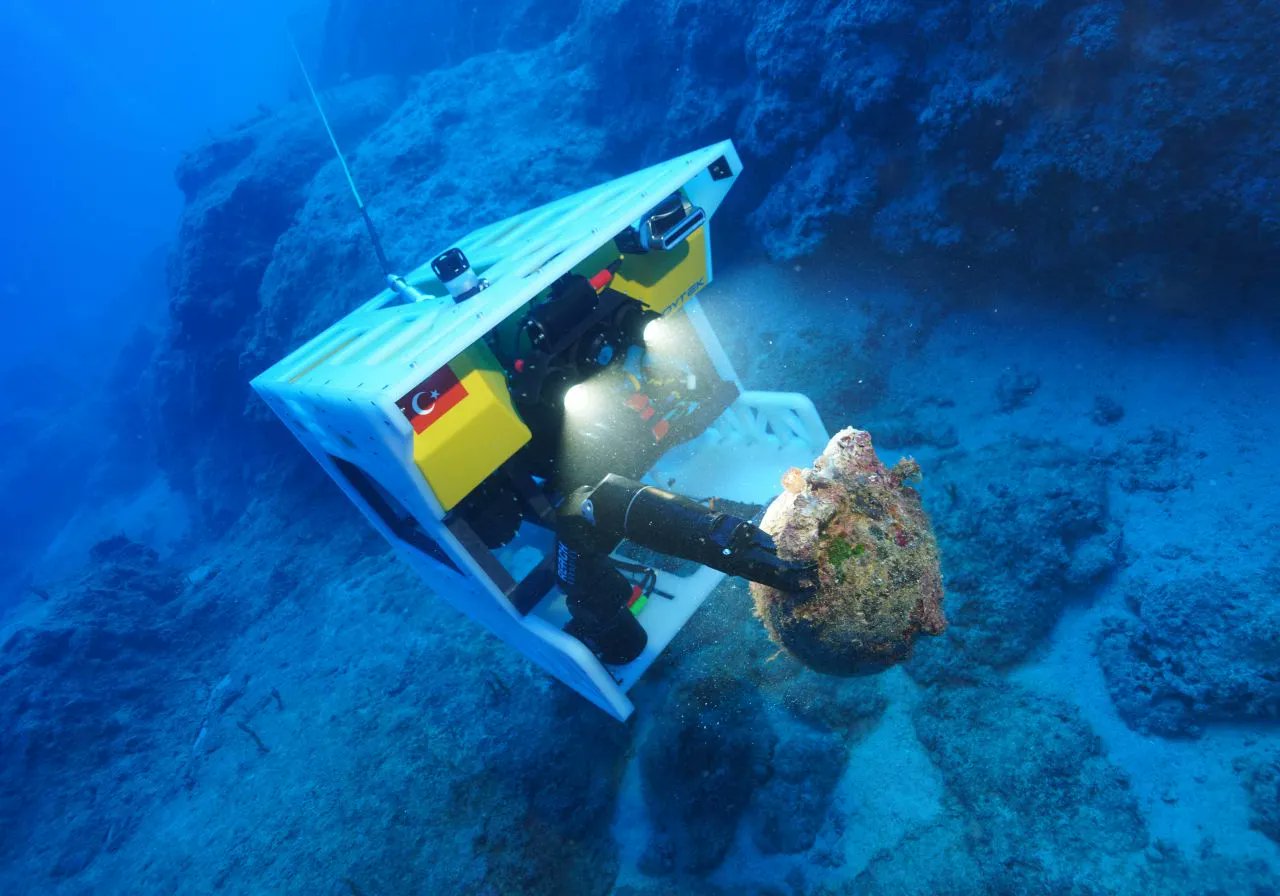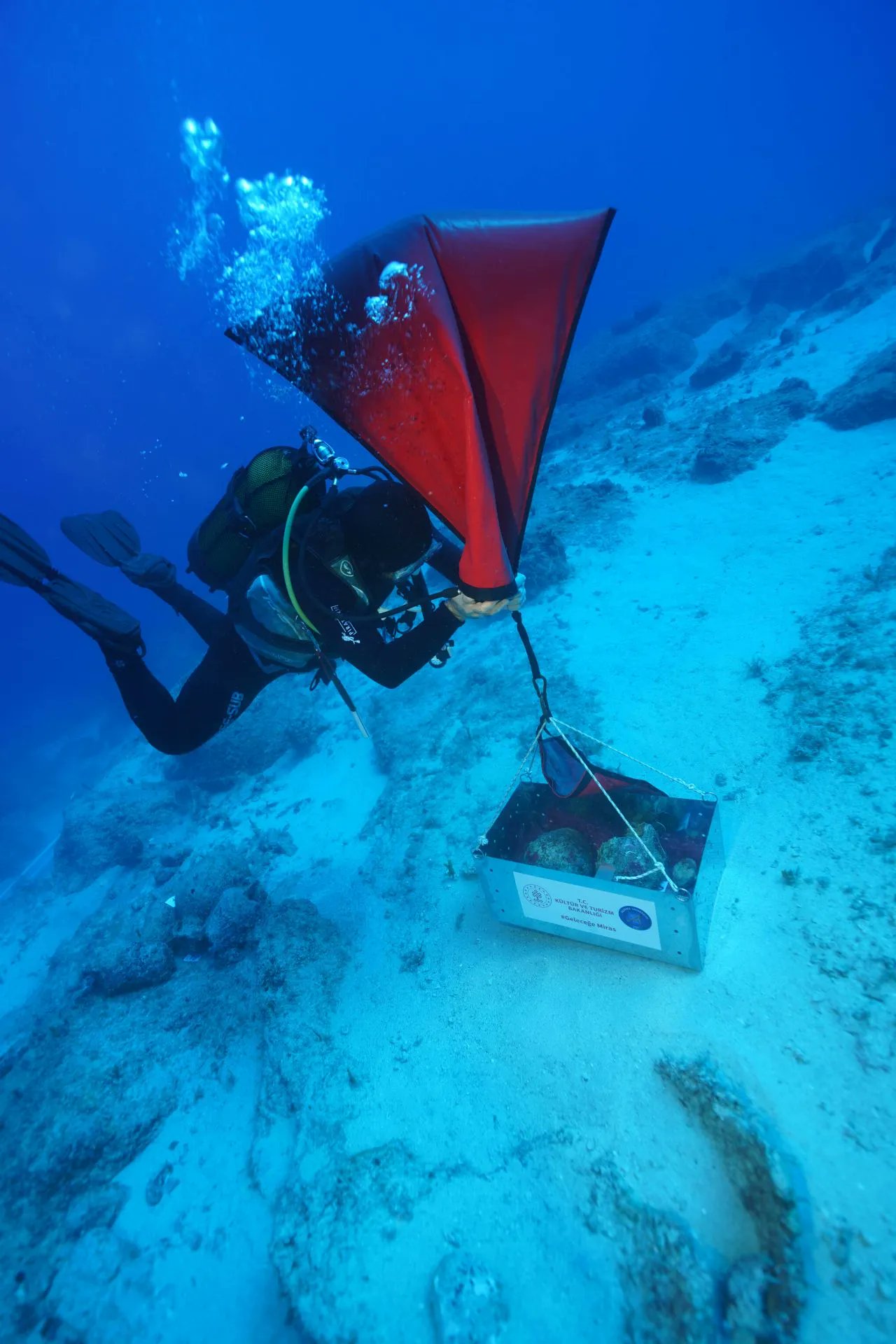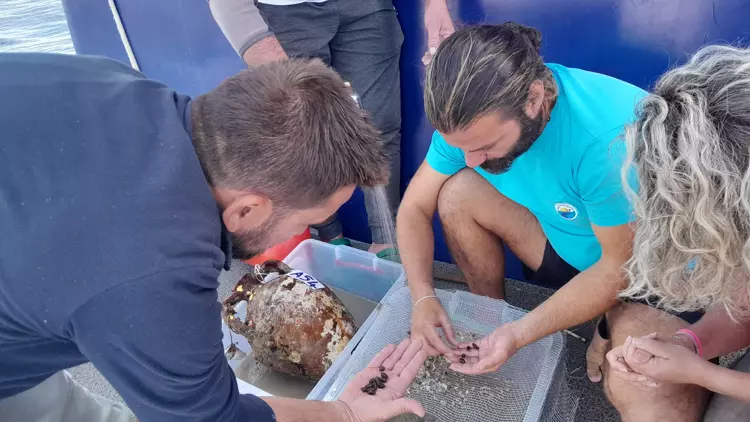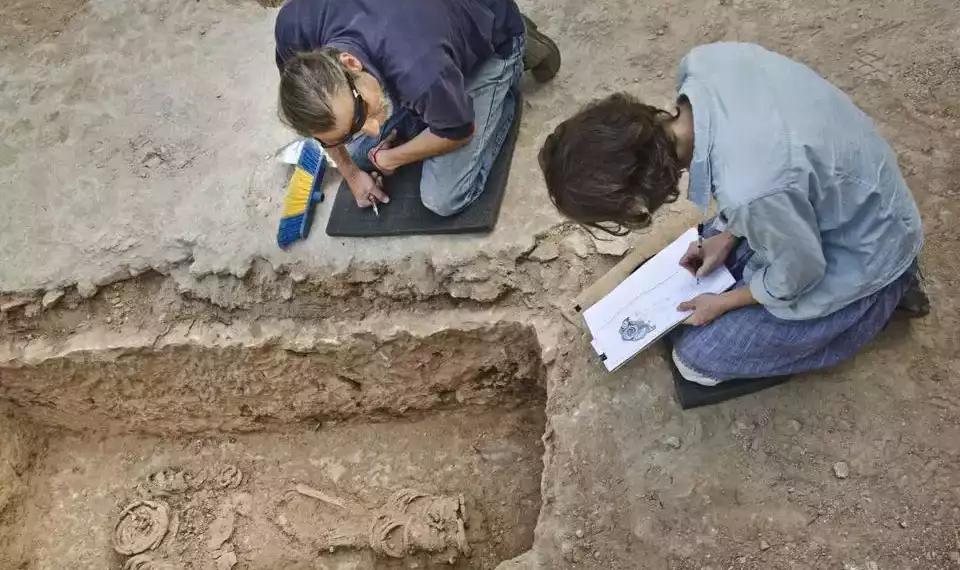In a remarkable archaeological find, researchers have uncovered 1100-year-old olive seeds from a shipwreck off the coast of Turkey. The ship, which set sail from Gaza, sank in a storm near Antalya, and this discovery has excited scientists, particularly Assoc. Prof. Dr. Hakan Öniz and his team, who made the find during underwater excavations that have not previously yielded such artifacts along Türkiye’s shores.
Dr. Öniz explained that their ongoing underwater archaeology project in the Kemer district allows for extensive research and the display of artifacts in a new museum. He noted that they can conduct excavations for up to 12 months and have also begun studying a wreck at Besmi Island in Kaş, which, while known to tourists, remains inaccessible to many due to its depth. “Our focus has been on amphorae dating back to the 9th-10th century AD,” he stated.

The shipwreck is believed to have been transporting olive oil from Gaza, a region historically known for its olive production. Dr. Öniz remarked, “While Gaza today often brings to mind negative associations, we hope for a brighter future for the region.” He described how the ship was caught in a storm and sank after hitting a small rock or island, making the wreck particularly intriguing due to its depth and the nature of its cargo.

Dr. Öniz highlighted the significance of the amphorae found, noting that they could identify the wreck as originating from Palestine based on the amphora typology. “We discovered something unprecedented in amphorae, which is a first for Turkey,” he said, expressing his excitement about the findings. The team utilized underwater robots to recover the amphorae, and in one of them, they found olive seeds, a discovery that adds a unique dimension to their research.
He emphasized the importance of olives as a staple food for sailors in the Mediterranean for thousands of years, stating, “Olives have been essential for sailors since the Bronze Age.” Dr. Öniz explained that olives, when stored in amphorae, could become edible in seawater within a week and last for months, making them a vital food source for long voyages. He also mentioned that ships transported live animals and wheat, which were ground into flour for bread.

Most underwater research in Turkey is conducted by Akdeniz University, and Dr. Öniz noted that the olive seeds found are the first of their kind along Türkiye’s coasts. He concluded by announcing that these findings will be showcased at the Mediterranean Underwater Archaeology Museum, which is being established by the Ministry of Culture and Tourism in Kemer. This discovery not only enriches Turkey’s historical narrative but also represents a significant advancement in the field of underwater archaeology.
Cover Photo: Selma Kunar/DHA





